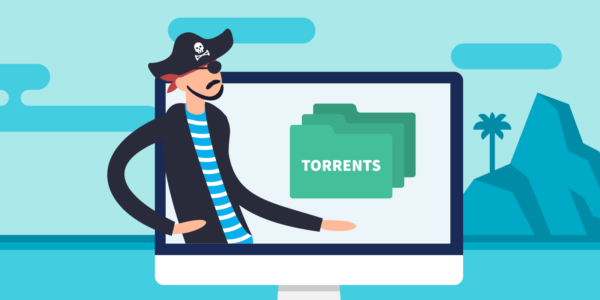Brief Overview
Torrenting, also known as peer-to-peer (P2P) file sharing, is a method of distributing large files over the internet. It involves breaking the file into smaller pieces and sharing them among multiple users, who download and upload pieces simultaneously. This decentralized approach allows for faster downloads and less strain on individual servers.
Detailed Explanation
Torrenting operates on a protocol called BitTorrent, which coordinates the transfer of files between users. Unlike traditional file downloads, where a single server provides the entire file, BitTorrent allows users to download from multiple sources simultaneously, increasing download speeds and reliability.
Key Features of Torrenting
- Decentralization: Files are distributed across multiple users, reducing reliance on a single server.
- Resilience: Even if some users go offline, the file can still be downloaded from others.
- Efficiency: Users share the burden of uploading, reducing strain on individual servers.
- Speed: Download speeds can be significantly faster compared to direct downloads, especially for popular files.
Types of Torrenting
Torrenting encompasses various types, including:
- Legal Torrenting: Sharing files that are freely available or distributed with permission, such as open-source software and creative commons media.
- Illegal Torrenting: Sharing copyrighted material without proper authorization, which infringes on intellectual property rights.
- Private Torrenting: Accessing exclusive communities where users share files within a closed network, often requiring invitation or membership.
| Type | Description |
|---|---|
| Legal Torrenting | – Sharing files with proper authorization<br>- Examples: Open-source software, creative commons media |
| Illegal Torrenting | – Sharing copyrighted material without permission<br>- Examples: Movies, music, software |
| Private Torrenting | – Exclusive communities for sharing files<br>- Require invitation or membership |
Ways to Use Torrenting
Torrenting serves various purposes, including:
- Downloading large files, such as movies, music albums, and software.
- Sharing user-generated content, such as videos and digital art.
- Distributing open-source software and other legal materials.
- Accessing content that may be restricted or unavailable through traditional channels.
Challenges and Solutions
Despite its benefits, Torrenting also presents challenges:
- Legal Risks: Downloading copyrighted material can lead to legal consequences.
- Solution: Ensure downloads are legal or use reputable sources for legal content.
- Malware and Viruses: Torrented files may contain malicious software.
- Solution: Use antivirus software and verify the integrity of files before opening.
- Slow Speeds: Torrenting speeds can vary depending on the number of available peers.
- Solution: Choose well-seeded torrents and consider using a high-speed internet connection.
Characteristics and Comparisons
| Characteristic | Torrenting | Direct Downloads |
|---|---|---|
| Speed | Faster due to parallel downloads | Slower, reliant on single server |
| Reliability | Resilient to individual failures | Vulnerable to server downtime |
| Legal Concerns | Potential for copyright issues | Generally safer for legal content |
| Efficiency | Distributes burden among users | Places strain on hosting server |
Future Perspectives
As technology evolves, Torrenting may face regulatory challenges and advancements in file sharing protocols. Decentralized technologies like blockchain could influence the future of P2P file sharing, offering enhanced security and anonymity.
VPN and Torrenting
Using a VPN (Virtual Private Network) with Torrenting offers several benefits:
- Privacy: Encrypts internet traffic, preventing ISPs and third parties from monitoring torrenting activity.
- Security: Shields against malware and hackers, enhancing online safety.
- Access: Allows bypassing geographical restrictions and accessing torrenting sites blocked in certain regions.
Resources for Further Information
- BitTorrent Protocol Specification
- Legal Torrent Sites
- VPN and Torrenting Guide
- Copyright Law and Torrenting
By understanding the nuances of Torrenting and utilizing appropriate precautions, users can safely and responsibly engage in file sharing activities while maximizing the benefits of this decentralized technology.


